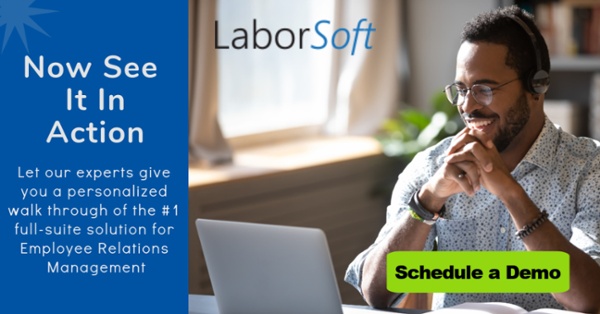The Big Debate: Can You Enforce Vaccines for Employees?
Read Time 6 mins | Mar 16, 2021 | Written by: Frankie Kourtis

The promise of a COVID-19 vaccine has kept us waiting on Dr. Fauci’s every word and on the edge of our seats for the last number of months: When will it arrive? When will I be eligible? Should I take it at all? However, not everyone subscribes to the same school of thought when it comes to vaccination. And, there is an additional consideration (or dilemma) that business owners and HR departments face — when it IS available, can I make it mandatory for my employees to receive when they return to the workplace?
Point of View Affects Vaccine Participation
According to a survey of 2,000+ employees sponsored by the Employee Benefit Research Institute and independent firm, Greenwald Research, 24% of respondents said they would not opt to receive the vaccine, while 9% of the pool was undecided. With the vaccine already being administered to immunocompromised individuals and from a sociological viewpoint, that is one-third of the working population who will not only not commit to receiving it, but who are undetermined either way. This puts companies in a precarious position in terms of their reopening plans and creating new policies for staff re-admittance to the workplace in 2021.
When facing the prospect of employees rejecting a dictum of required vaccination, companies have to weigh their options when formulating their return policies. However, it is important to note that the EOC came out with new guidance over the last few months which designates that employers CAN require employees to get immunized with the COVID-19 vaccine, with some accommodation exceptions—those with qualifying physical disabilities or religious objections. In these cases, an employer must offer a reasonable accommodation, such as a continued remote work option or reassignment to another area or department that does not require in-person attendance—as long as it doesn’t cause “undue hardship”. As Shannon Farmer, a labor relations and employment attorney based at Ballard Spahr in Philadelphia, stated: “They [employers] have to check with their state and deal with the accommodation issues, but in broad terms, yes, employers can mandate it.”
On the other side of the fence are those who welcome mandating the vaccine and those who would adhere to such a mandate. The Yale Chief Executive Leadership Institute recently took a poll of prominent CEOs and found that 72% conveyed being open to vaccine mandates. In a similar vein, a survey conducted of more than 2,000 respondents by outsourcing firm, Sykes, reported more than half responding that a vaccine SHOULD be required for those employees who plan on returning to work in person, and a significant number said that while they didn’t intend to receive it, they would do so if their employer required it.
Legal and Civil Rights Considerations
Where the lines become blurred is what employees can do in response to being forced to take the vaccine if they are unwilling or have moral opposition to it. In this case, the best route to go is to gauge your staff’s willingness with a dipstick survey and get a baseline of their intention to return to the workplace setting NOW. Having a good handle of your workforce’s demographics and risk status will arm you with a sense of how your staff is liable to react or what they are apt to do when they are expected to get vaccinated before their return. In this sense, early communication and providing a forum for employees to ask questions early is key.
Also, a good indication of your employees’ reception to this type of mandated guideline can be gauged by the workforce’s reluctance or acceptance of adhering to COVID-related restrictions over the last year. As Melissa Gonzalez Boyce, an attorney and legal editor at XpertHR, points out: “[Employers] should look at [what happened] when they implemented health and safety protocols in the last few months. For example, if a large segment of your workforce resisted wearing a mask or resisted social distancing or any of those protocols that employers tried to implement, that should give a clear indication as to where your workforce falls on the vaccine front.”
When it comes down to it, the way in which your HR department delivers a vaccination policy may also affect your staff’s willingness to accept or reject it. For example, if it is written or stated as a recommendation versus a mandate, employees may be more likely to consider taking it. However, if it is communicated in such a way that the EOC and, in turn, your company requires it, this may anger or set off those who are still on the fence about receiving the vaccine in the first place. For this reason, Gonzalez Boyce advocates for laying out a voluntary policy over a mandated directive. “It’s a public health emergency, and it’s a measure to protect the community as a whole. So, my recommendation is to educate employees that it’s safe and that it’s backed by science—while also not taking a social or political stance. Employers may want to have an educational campaign with emails, mailers and so on.”
However, despite the way your HR department broaches the topic, you must be prepared that there WILL BE employees who refuse or will not receive the vaccine due to physical or religious reasons. To entangle yourself in those instances is inviting resistance and even possible lawsuits. The last thing you likely want to do is go down that path and inundate your HR staff with threats of lawsuits and unnecessary headaches. Another consideration is if your company operates in a multi-state footprint, you need to consult state laws and regulations since they could vary from state to state. Also, there are industries that mandating the vaccine will be a given, such as the manufacturing, hospitality and entertainment industries, where employees are needed to man public areas in order to accommodate patrons.
So, the wait for a ‘vaccine for all’ is on and all of the CDC recommendations are still to be determined, but while we wait your company is best served to prepare a plan and get all of your proverbial and professional ducks in a row now. Outlining your expectations for your employees will be a business-saver later when we hopefully return to ‘business as usual’.
LaborSoft’s innovative technology is one of many integral solutions that keep your business, in business. Our employee relations analytics, case management workflows, and our central repository of documentation streamlines case management to mitigate risk of operational bottlenecks, costly lawsuits, and legal ramifications stemming from HR issues and complaints. This sensitive data requires that maximum security protocols are in place and that your information is protected at all times.
-----------------------------------------------------------------Contact us for a customized demonstration and learn how LaborSoft can help you improve communications, build a more collaborative, safe, and supportive workplace, while reducing the likelihood of costly litigation.


